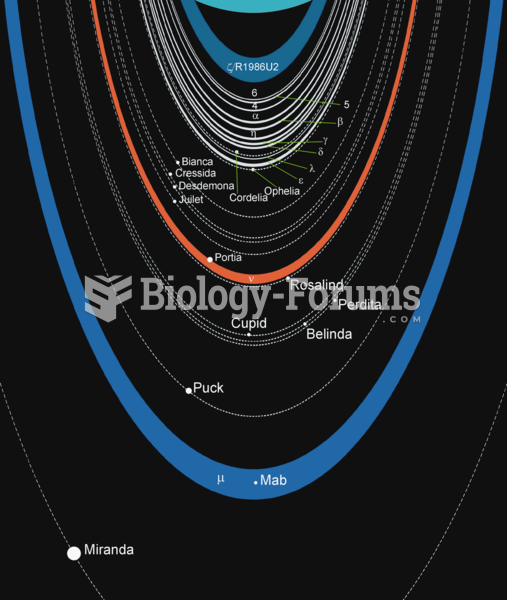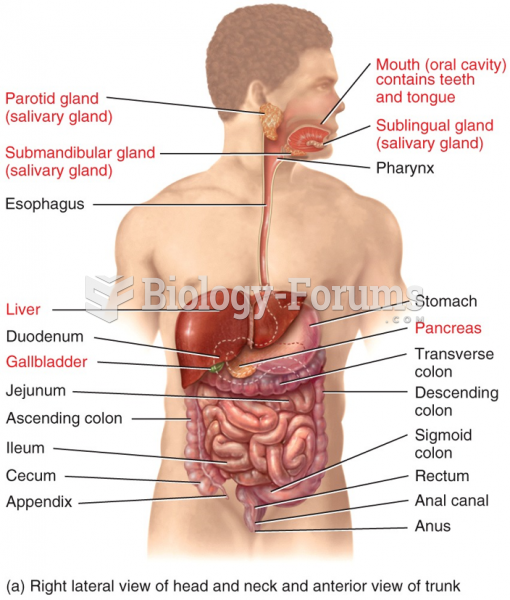|
|
|
It is difficult to obtain enough calcium without consuming milk or other dairy foods.
After 5 years of being diagnosed with rheumatoid arthritis, one every three patients will no longer be able to work.
The human body produces and destroys 15 million blood cells every second.
About one in five American adults and teenagers have had a genital herpes infection—and most of them don't know it. People with genital herpes have at least twice the risk of becoming infected with HIV if exposed to it than those people who do not have genital herpes.
Only one in 10 cancer deaths is caused by the primary tumor. The vast majority of cancer mortality is caused by cells breaking away from the main tumor and metastasizing to other parts of the body, such as the brain, bones, or liver.







